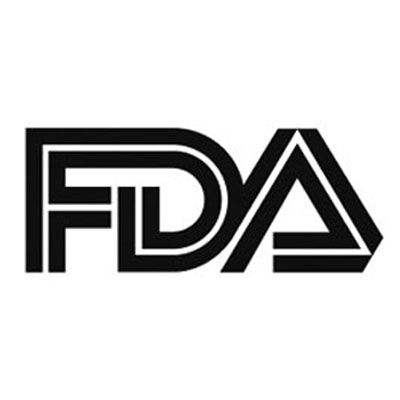FDA Grants Priority Review to Osimertinib for Early-Stage EGFR-Mutant NSCLC
The FDA granted a Priority Review designation to adjuvant osimertinib as treatment of patients with stage IB/II/IIIA EGFR-mutant non–small cell lung cancer following a complete tumor resection with curative intent.

The FDA has granted a Priority Review designation to a supplemental New Drug Application (sNDA) for adjuvant osimertinib (Tagrisso) as treatment of patients with stage IB/II/IIIA EGFR-mutant non–small cell lung cancer (NSCLC) following a complete tumor resection with curative intent, AstraZeneca announced in a press release.1
The Prescription Drug User Fee Act target action date is during the first quarter of 2021. The sNDA is supported by the findings from the phase 3 ADAURA trial (NCT02511106), which demonstrated a statistically significant and clinically meaningful improvement in disease-free survival (DFS) in patients with early-stage EGFR-mutant NSCLC.
“Patients with early-stage EGFR-mutated lung cancer are still at considerable risk of recurrence after surgery and adjuvant chemotherapy, and new targeted treatment options are critical to improving outcomes for these patients,” said Dave Fredrickson, executive vice president, Oncology Business Unit, AstraZeneca, in a statement. “This expedited review underscores the unprecedented DFS benefit osimertinib brings to patients in the adjuvant setting, and we will continue working with the FDA to provide this practice-changing treatment to patients as quickly as possible.”
In the double-blind ADAURA study, patients were randomized in a 1:1 fashion to receive either osimertinib at 80 mg once daily or placebo for 3 years. The primary end point of the study was DFS among patients with stage II to IIIA NSCLC, and secondary end points included DFS in the overall population of patients with stage IB to IIIA disease, overall survival (OS), and safety. Overall, 682 patients underwent randomization, with 339 patients in the osimertinib group and 343 in the placebo arm.2
According to the findings presented during the 2020 American Society of Clinical Oncology (ASCO) Virtual Scientific Program, osimertinib treatment led to an 83% reduction in the risk of disease recurrence or death among patients with stage II to IIIA disease, and a 79% reduction in the risk of disease recurrence or death in the overall population (HR, 0.21; 95% CI, 0.16-0.28; P <.0001).
At 33% maturity, the median DFS had not yet been reached with osimertinib (95% CI, 38.8-not calculable [NC]) versus 20/4 months (95% CI, 16.6-24.5) with placebo (HR, 0.17; 95% CI, 0.12-0.23; P <.0001). Among the overall population at 29% maturity, the median DFS was also not reached with the study drug (95% CI, NC-NC) versus 28.1 months (95% CI, 22.1-35.8) with placebo.
The DFS rates among those with stage II to IIIA disease in the osimertinib versus placebo arms were 97% versus 61% at 1 year, 90% versus 44% at 2 years, and 80% versus 28% at 3 years. Additionally, in the overall population, the 1-, 2-, and 3-year DFS rates were 97%, 89%, and 79% with osimertinib versus 69%, 53%, and 41% with placebo, respectively.
The EGFR tyrosine kinase inhibitor was well tolerated with a safety profile consistent with the known safety profile of this drug. The median duration of exposure to osimertinib in the study was 22.3 months (range, 0.43) versus 18.4 months on placebo (range, 0.48). No adverse events (AEs) led to death in the osimertinib group.
The most common AEs included diarrhea, paronychia, and dry skin, which were mostly grade 1 or 2 in severity. Grade 3/4 AEs were low, with interstitial lung disease observed in 3% of the osimertinib arm (n = 10). QTc prolongation was also reported in 7% of the osimertinib arm (n = 22) versus 1% with placebo (n = 4).
This agent previously received a Breakthrough Therapy designation in July 2020 for this indication, and the agent has also received a prior approval for both the frontline treatment of patients with locally advanced or metastatic EGFR-mutant NSCLC and for the treatment of locally advanced or metastatic EGFR T790M mutation-positive NSCLC. Osimertinib received this approval in the United States, Japan, China, and the European Union, among other countries around the world as well.1
References
1. Tagrisso granted Priority Review in the US for the adjuvant treatment of patients with early-stage EGFR-mutated lung cancer. News Release. AstraZeneca. October 20, 2020. Accessed October 20, 2020. https://bit.ly/31mHNmY
2. Herbst RS, Tsuboi M, John T, et al. Osimertinib as adjuvant therapy in patients with stage IB-IIIA EGFR mutation-positive NSCLC after complete tumor resection: ADAURA. J Clin Oncol. 2020;38(suppl; abstr LBA5). doi: 10.1200/JCO.2020.38.18_suppl.LBA5
Kim Evaluates New Regimens for EGFR+ Lung Cancer
January 20th 2025During a Community Case Forum event in partnership with the Medical Oncology Association of Southern California, Edward S. Kim, MD, MBA, discussed the FLAURA2 and MARIPOSA trials of newer regimens for EGFR-positive lung cancer.
Read More
Amivantamab/Lazertinib Maintains OS Benefit in EGFR+ NSCLC
January 15th 2025During a Case-Based Roundtable® event, Joshua K. Sabari, MD, continued discussion of key outcomes from the MARIPOSA trial and toxicity management in patients with EGFR-mutated non–small cell lung cancer in the second article of a 2-part series.
Read More